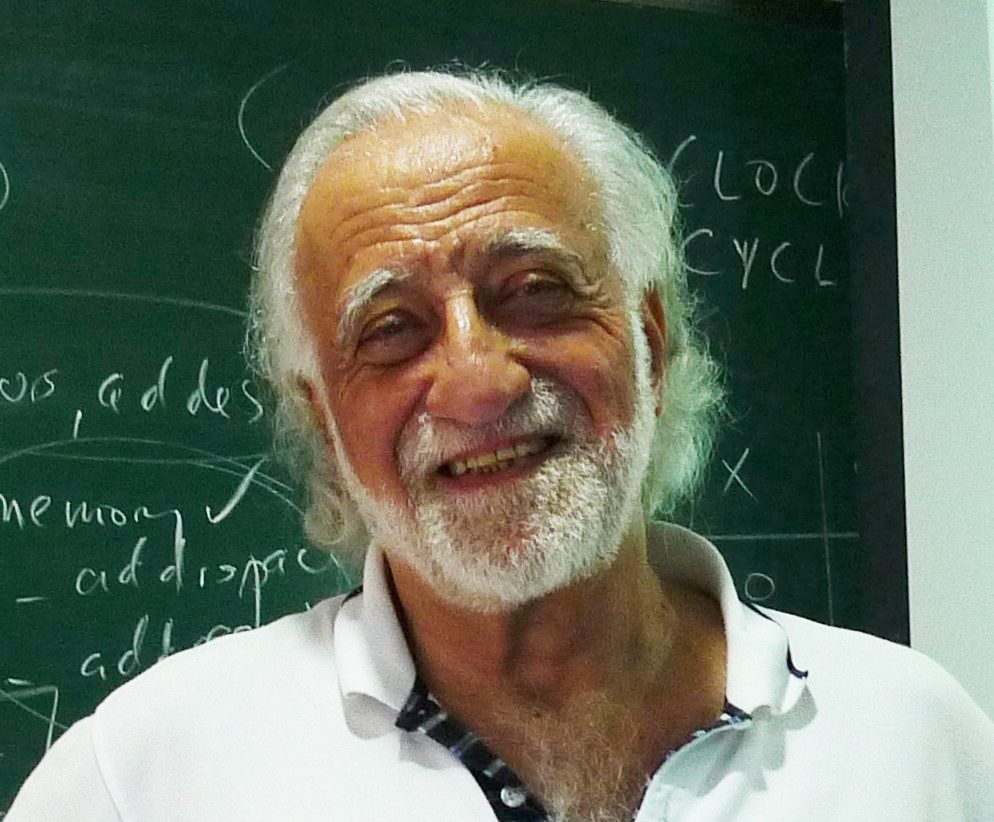
|
||
Title
From DUMB computers to SMART computing
Abstract
As the keynote in this first IEEE Conference on Smart Computing, it is useful to ask what smart computing is, and how we can ever get there when we must start with dumb computers, since computers really are electronic idiots that do exactly what they are told to do one very simple step at a time, and do so with very simple structures. The organizers of this conference have correctly recognized that designing and building a smart computing system requires two things: determining what the smart computing system one wants to build is, and harnessing computing technology to build it. In this talk I will try to examine what these two requirements involve, what each of us needs to bring to the table to be effective contributers, and what needs to happen to get us ready to produce smart computing systems.
Biography
Yale Patt is the Ernest Cockrell, Jr. Centennial Chair in Engineering and Distinguished University Teaching Professor at The University of Texas at Austin. He directs the research of eight PhD students, while enjoying an active consulting practice with several microprocessor manufacturers.
He regularly teaches the required Introduction to Computing course to more than 400 freshmen and his advanced graduate course in Microarchitecture to those planning careers as cutting-edge computer architects. Some of his research ideas (e.g., HPS, branch prediction) have ended up in the cutting-edge chips of Intel, AMD, etc. Some of his teaching ideas have resulted in his motivated bottom-up approach for introducing computing to serious students, captured in his revolutionary textbook "Introduction to Computing Systems: from bits and gates to C and beyond" (McGraw-Hill, c/2000, c/2004), co-authored with his former student Professor Sanjay Jeram Patel of Illinois. He has received many of the highest honors in the field for both his research and teaching, including the 1996 IEEE/ACM Eckert-Mauchly Award, and the 2000 ACM Karl V. Karlstrom Outstanding Educator Award. He is a Fellow of both the IEEE and ACM and a member of the National Academy of Engineering. More detail is available on his web site www.ece.utexas.edu/~patt. |
|
||
Title
Analytics of Smart Computing in a Data-centric World
Abstract
In today's globally interconnected, information-rich world, smart computing might be less of a function of what individual computing devices can do, and more of a function of the data collected from them. Individuals and devices in their possession contribute data at unprecedented rates offering significant opportunities for developing smarter services that increase the efficiency of the planet and the quality of life. This talk will offer a look into the possibilities afforded by data collection and aggregation at scale, describe analytical, systems, and societal challenges that arise in the age of global information exchange, and present examples of novel services that can leverage the unprecedented degree of connectivity to attain the vision of smart computing.
Biography
Tarek Abdelzaher received his B.Sc. and M.Sc. degrees in Electrical and Computer Engineering from Ain Shams University, Cairo, Egypt, in 1990 and 1994 respectively. He received his Ph.D. from the University of Michigan in 1999 on Quality of Service Adaptation in Real-Time Systems. He has been an Assistant Professor at the University of Virginia, where he founded the Software Predictability Group. He is currently a Professor and Willett Faculty Scholar at the Department of Computer Science, the University of Illinois at Urbana Champaign. He has authored/coauthored more than 200 refereed publications in real-time computing, distributed systems, sensor networks, and control. He is an Editor-in-Chief of the Journal of Real-Time Systems, and has served as Associate Editor of the IEEE Transactions on Mobile Computing, IEEE Transactions on Parallel and Distributed Systems, IEEE Embedded Systems Letters, the ACM Transaction on Sensor Networks, and the Ad Hoc Networks Journal. He chaired (as Program or General Chair) several conferences in his area including RTAS, RTSS, IPSN, Sensys, DCoSS, ICDCS, and ICAC. Abdelzaher's research interests lie broadly in understanding and controlling performance and properties of networked embedded, social, and software systems in the face of increasing complexity, distribution, and degree of embedding in an external physical environment. Tarek Abdelzaher is a recipient of the IEEE Outstanding Technical Achievement and Leadership Award in Real-time Systems (2012), the Xerox Award for Faculty Research (2011), as well as several best paper awards. He is a member of IEEE and ACM. More detail is available on his web site http://web.engr.illinois.edu/~zaher/.
|

